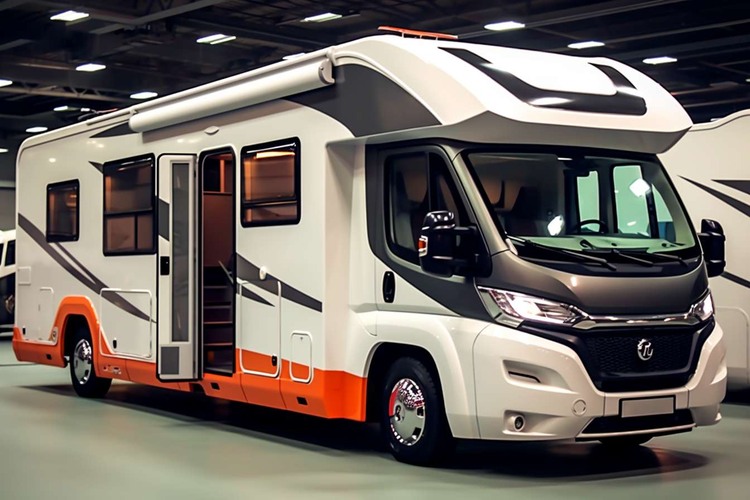RV Trips Made Easier: What Seniors Are Exploring for Accessible Travel
RV travel offers seniors the freedom to explore at their own pace, with the comfort of home on the road. This article looks at what older adults are considering when choosing an RV such as space, accessibility, ease of driving, and features that support safe, comfortable travel.

What types of RVs are seniors gravitating towards?
When it comes to RV selection, seniors are exploring a range of options to suit their travel styles and physical needs. Class A motorhomes, which resemble large buses, are popular among those seeking spacious living areas and luxury amenities. These vehicles often feature slide-out sections that expand the interior space when parked, making them ideal for extended trips.
For seniors who prefer a more manageable size, Class B motorhomes, also known as campervans, offer a compact yet comfortable solution. These vehicles are easier to drive and park, making them suitable for those who want to navigate urban areas or smaller campgrounds with ease.
Travel trailers and fifth-wheel RVs are attracting seniors who already own a truck or SUV capable of towing. These options provide the flexibility of detaching the living space from the vehicle, allowing for easier day trips once a campsite is established.
What features support comfort and safety in RVs for seniors?
RV manufacturers are increasingly incorporating features that cater to the comfort and safety needs of older adults. Accessibility is a key consideration, with many models now offering features such as:
-
Low-step entries or retractable steps for easier access
-
Wider doorways and hallways to accommodate mobility aids
-
Grab bars in bathrooms and other strategic locations
-
Walk-in showers with non-slip flooring
-
Adjustable beds with easy-to-reach controls
Safety features are also paramount, with many RVs now equipped with backup cameras, blind-spot monitoring systems, and advanced climate control to ensure a comfortable and secure travel experience.
How are older adults preparing for RV travel?
Preparation is key for seniors embarking on RV adventures. Many are taking RV driving courses to familiarize themselves with the unique challenges of maneuvering larger vehicles. These courses often cover topics such as backing up, turning, and navigating steep grades.
Physical preparation is also important. Some seniors are working with physical therapists to improve their strength and flexibility, ensuring they can handle the physical demands of RV living, such as hitching trailers or setting up campsites.
Tech-savvy seniors are leveraging apps and online resources to plan their routes, locate RV-friendly campgrounds, and connect with other RV enthusiasts. Many are joining RV clubs and forums to share experiences and gather tips from seasoned travelers.
What are the differences between RV ownership and rental options?
Seniors contemplating RV travel are weighing the pros and cons of ownership versus rental. Ownership provides the freedom to customize the RV to personal preferences and the convenience of having it ready for spontaneous trips. However, it also comes with responsibilities such as maintenance, storage, and potentially higher upfront costs.
Renting, on the other hand, offers flexibility and the opportunity to try different types of RVs without a long-term commitment. It’s an attractive option for those new to RV travel or who prefer to avoid the ongoing costs of ownership. Many rental companies now offer senior-friendly options with features tailored to older adults’ needs.
Why are some retirees choosing RV life full-time?
For some seniors, RV travel isn’t just a vacation option—it’s becoming a lifestyle choice. Full-time RV living is appealing to retirees for several reasons:
-
Cost-effective living: By eliminating mortgage or rent payments, some find it more economical than maintaining a traditional home.
-
Simplified lifestyle: Downsizing to an RV can mean less maintenance and more focus on experiences rather than possessions.
-
Flexibility to follow ideal weather: Known as “snowbirds,” many retirees use RVs to escape harsh winters and enjoy milder climates year-round.
-
Opportunity for continuous travel: Full-time RV life allows for extended exploration of different regions and cultures.
What are the real costs associated with RV travel for seniors?
Understanding the financial aspects of RV travel is crucial for seniors planning their adventures. Here’s a breakdown of potential costs:
| Expense Category | Estimated Cost Range | Notes |
|---|---|---|
| RV Purchase | $50,000 - $300,000+ | Varies widely based on type and features |
| RV Rental | $100 - $500 per night | Depends on RV size and rental duration |
| Campground Fees | $25 - $100 per night | Varies by location and amenities |
| Fuel | $0.10 - $0.25 per mile | Depends on RV size and fuel efficiency |
| Insurance | $1,000 - $2,000 annually | For owned RVs; rentals may have separate fees |
| Maintenance | $1,000 - $3,000 annually | Regular servicing and unexpected repairs |
Prices, rates, or cost estimates mentioned in this article are based on the latest available information but may change over time. Independent research is advised before making financial decisions.
When considering the financial implications of RV travel, seniors should factor in both the upfront costs and ongoing expenses. While the initial investment can be significant, many find that the freedom and experiences gained through RV travel are well worth the cost.
In conclusion, RV travel offers seniors an exciting way to explore new horizons while maintaining comfort and independence. With a variety of RV types to choose from, features designed for accessibility and safety, and options for both ownership and rental, older adults are finding that hitting the road in an RV can be an enjoyable and fulfilling way to spend their retirement years. Whether opting for occasional trips or embracing full-time RV living, seniors are discovering that this mode of travel can open up a world of adventures tailored to their needs and desires.




